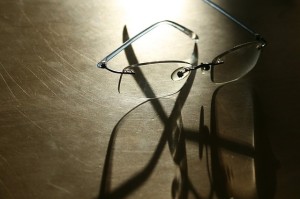Contributor: Crystal Karges, MS, RDN, IBCLC for Addiction Hope
 With the holiday day season in full swing, it can be easy to fall into the mentality of spending and buying. Many retailers take advantage of the holidays to offer incentives for purchasing, and spending can become a mindless part of living.
With the holiday day season in full swing, it can be easy to fall into the mentality of spending and buying. Many retailers take advantage of the holidays to offer incentives for purchasing, and spending can become a mindless part of living.
What if your spending habits begin to affect your quality of life? Is it possible that shopping or spending can become an addiction?
Compulsive buying or shopping is in fact a reality that many individuals struggle with on a daily basis. While there is not an official diagnosis for compulsive shopping in the Diagnostic and Statistical Manual of Mental Disorders, it is typically identified as an issue of impulse control.
The Comorbidity of Compulsive Spending
Compulsive buying disorder can also be comorbid with substance abuse or a mood disorder, as many similar connections or characteristics are often seen. For example, a person who makes compulsive purchases may feel the same rush or euphoria an addict feels with their drug of choice.
Similarly, a compulsive shopper may find that buying or purchasing things alleviates stress or helps establish a sense of control in a chaotic environment.
The Criteria of Compulsive Spending
 Do you or someone you care for struggle with compulsive spending? While compulsive buying disorder is not a diagnosable disorder, there are many criteria that can help you understand if this is something you may be dealing with.
Do you or someone you care for struggle with compulsive spending? While compulsive buying disorder is not a diagnosable disorder, there are many criteria that can help you understand if this is something you may be dealing with.
A compulsive spender will typically exhibit the following signs and symptoms:
Consistently spending more money on purchases that you can realistically afford:
This may involve the use of credit cards to pay for purchases when funds are insufficient or unavailable.
Shopping in a response to an emotional situation:
Compulsive shoppers will usually spend money recklessly in response to an emotionally charged trigger, such as anger, anxiousness, or depression. This may also involve conflicts in relationships or traumatic situations that involve many overwhelming emotions.
Compulsive buying may be a way in which individuals feel they are able to keep these emotions at bay or numb the pain they may be feeling.
Feeling a loss of control:
Shopping addicts may feel that their spending is out of control, and though they can identify their habits as detrimental may feel unable to stop.
Reckless shopping behaviors that persist in spite of negative consequences may be reflective of compulsive buying behaviors.
Buying several items that go unused:
Compulsive shoppers typically achieve a euphoric feeling through the act of buying in itself and may not necessarily need or want the item purchased.
This can result in the hoarding of purchased goods, whether it be clothes, home goods, furnishings, decorations, antiques, etc. Compulsive shoppers may have an excessive of product, including purchases that still have tags.
Feelings of guilt or anxiety after purchases:
While buying things may feel good in the moment for compulsive shoppers, many shopping sprees will typically lead to feelings of guilt or anxiety. A compulsive shopper may feel bad about their poor choices and careless way of handling money.
However, feelings of guilt may lead to additional shopping, which creates a vicious cycle of addiction.
Shopping Addiction Can Be Destructive
 A shopping addiction can be as destructive as an addiction to drugs or alcohol. Uncontrolled spending often leads to financial strain, which can severely impact relationships, families, and quality of life.
A shopping addiction can be as destructive as an addiction to drugs or alcohol. Uncontrolled spending often leads to financial strain, which can severely impact relationships, families, and quality of life.
A person’s compulsive shopping habits can be an overwhelming burden, not only for the individual, but for the loved ones in their lives as well.
Seeking Help
If you or someone you care for is struggling with an addiction to shopping, it is important to address the issue with professional assistance. If a substance abuse issue is also active with compulsive shopping, it is important to seek help.
You can regain your life back and find peace in each aspect of your life, and this will begin by facing the problems you might be struggling with.
Compulsive shopping is a serious concern that can have grave consequences if left unchecked. If this is something you struggle with, especially in connection with substance abuse, be sure to get the help you need to overcome this burden.
Community discussion – Share your thoughts here!
Have you struggled with compulsive spending? What are suggestions that you might have to help overcome a shopping addiction?
Last Updated & Reviewed By: Jacquelyn Ekern, MS, LPC on January 1st, 2015
Published on AddictionHope.com
